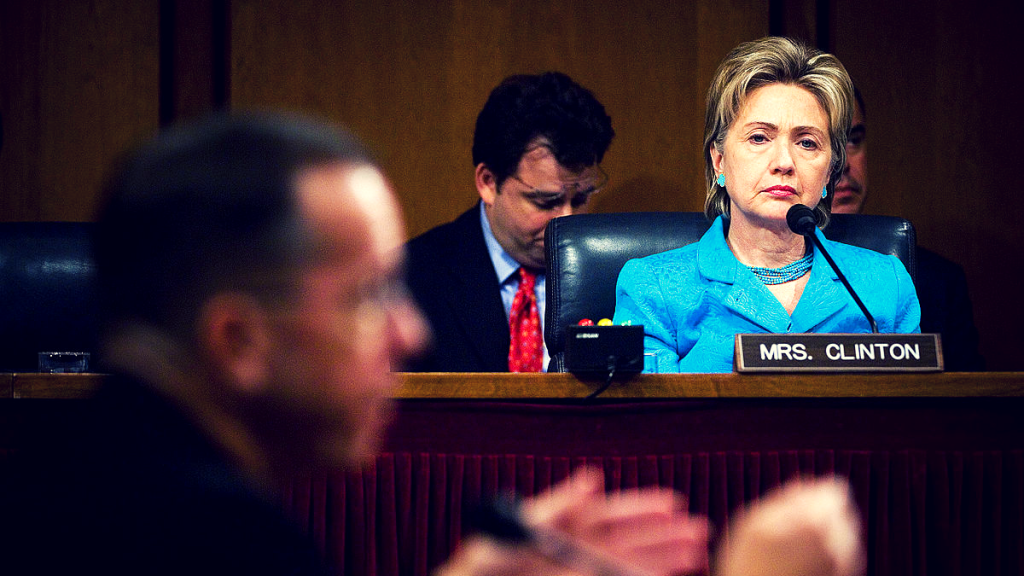Hillary Clinton is proposing a dramatic increase in the estate tax—a tax on your right to transfer property to your descendants—from 40% to 65%. There are two problems with this:
- The belief that estates should be taxed at all reveals a fundamental misunderstanding of economics.
- The actual taxing of estates has very different effects than those that advocates imagine it will have.
The assumptions underlying the estate tax are fundamentally flawed
The desire to tax estates often arises from a sense that someone who accumulates a lot of money has gained at the expense of others, which generates an obligation to “give back.” While this might be true of an economy in which people are forced to buy things against their wills, in a free market economy this is not true.
Consider the story of Emily, a well-meaning citizen who likes to fix cars and paint houses for the neighbors in her community. In performing this service to her community, Emily provides value to her neighbors, and her neighbors value her service so much that they are willing to pay her $2,000 per month. The fact that the community is willing to pay Emily $2,000 per month indicates that the community receives at least $2,000 worth of value from Emily’s services.
In order to sustain and entertain herself, Emily needs some of the community’s resources—energy, housing, and food, among other things. But the community values the resources that Emily needs so much that the community requires her to pay $1,500 in exchange for the resources. In the community’s own opinion (reflected in the prices the community is willing to pay for service and accept in exchange for resources), Emily is providing more value to the community than she asks in exchange. This is exactly the sort of person one would want in a community—someone who produces more value than she consumes.
But notice what happens to the dollars. Each month, Emily produces $2,000 worth of services for the community and consumes $1,500 worth of resources. She ends the month with $500 left over. And over time, this money accumulates. At the end of ten years, Emily will have accumulated $60,000! But it’s not right to say that, because she has accumulated a lot of money, Emily needs to “give back.” In actuality, that $60,000 represents value the community owes Emily because she consistently produced more value for the community than she received.
Seen correctly, an estate is not something that has been taken from the rest of society and somehow needs to be recirculated and redistributed. The estate is a chunk of value that the community still owes the person, even after that person has died.
The Estate Tax hurts small businesses, not idle millionaires
But even if it were true that the estate somehow represents value that a person has taken from society, the estate tax does not redistribute the estate to society in the way we might imagine it does. When we think of the estate tax, we tend to imagine idle millionaires who, if we did not tax away and redistribute their estates, would just spend the money on frivolous luxuries while the rest of us struggled to acquire necessities.
In fact, most of the people who are hit hardest by the estate tax are small business owners. Suppose you own a business that has $20 million in net assets. You die and leave this business to your children. You have not left them $20 million in cash. You have left them buildings, machinery, land, inventory, and financial assets that are worth $20 million. For most businesses, little value will be left in financial assets; most will be in the buildings, land, and machinery. Under Clinton’s proposal, you would owe $5 million in taxes. And the IRS wants cash. That means that, at best, you’ll have to divert cash that would otherwise have gone to expanding and maintaining your business to the IRS. At worst, you’ll have to sell off some of the hard assets to raise the cash the IRS demands. Either way, this business you have inherited will shrink.
And notice that the tax does not impact large corporations like this. If you leave your heirs IBM stock worth $20 million, your heirs will have to pay estate tax. But it will have no effect at all on IBM. The estate tax ends up being a tax that decreases the number of small and family businesses but not the number of large corporations.
To make matters worse, the extremely wealthy can afford to set up tax-free foundations to shield their wealth from the estate tax. For example, the Clinton Foundation is worth hundreds of millions of dollars. When Chelsea inherits control of the foundation, she will owe no estate taxes. Hillary Clinton’s plan will confiscate large chunks of family businesses as they are passed from one generation to the next, but will have no effect whatsoever on the Clinton Foundation when it passes to her daughter.



